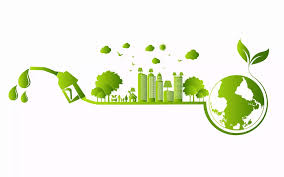Ethanol Blending Program:

India is progressing towards its goal of 20% ethanol blending with petrol by 2025-26. However, concerns remain over the impact on food supplies and the fuel efficiency of existing vehicles.
- Ethanol is a biofuel produced through the fermentation of sugars by yeasts or via petrochemical processes such as ethylene hydration.
- It is rich in oxygen content, enabling more efficient fuel combustion in engines.
- Ethanol blending involves mixing ethanol derived from agricultural products with petrol to create a blended motor fuel.
Production of Ethanol in India: - The Department of Food and Public Distribution (DFPD) is the primary agency promoting the establishment of fuel-grade ethanol distilleries.
- Ethanol is produced from sugarcane-based materials like C & B heavy molasses, sugarcane juice, sugar syrup, surplus rice from the Food Corporation of India (FCI), and maize.
- Globally, over 110 billion litres of ethanol fuel were produced in 2019, with the US and Brazil contributing 84% of this production.
- India imports over 85% of its oil, and ethanol blending could reduce reliance on petroleum imports.
- In 2020-21, India’s net petroleum imports amounted to 185 million tonnes at USD 551 billion. Ethanol blending can save billions in foreign exchange.
- Ethanol is a less polluting fuel, offering similar efficiency to petrol at a lower cost.




